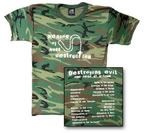Angels in the Outfield...
St. Thomas (Summa Theologica I:108), following St. Denis (De Coelesti Hierarchia, vi, vii), divides the angels into three hierarchies each of which contains three orders. Their proximity to the Supreme Being serves as the basis of this division. In the first hierarchy he places the Seraphim, Cherubim, and Thrones; in the second, the Dominations, Virtues, and Powers; in the third, the Principalities, Archangels, and Angels. The only Scriptural names furnished of individual angels are Raphael, Michael, and Gabriel, names which signify their respective attributes. Apocryphal Jewish books, such as the Book of Enoch, supply those of Uriel and Jeremiel, while many are found in other apocryphal sources, like those Milton names in "Paradise Lost". (On superstitious use of such names, see above).from New Advent's article on "Angels"
Did you know that the angels in heaven are ranked? There are nine levels. Many people only talk of the Archangels and Angels. The ranks are as follows:
(highest to lowest)
Seraphim:
Angels composing the highest choir of the angelic kingdom. The root meaning of their name is "to consume with fire," indicating their intense love of the Holy Trinity. (Etym. Hebrew 'saraf,' plural 'serafim,' burning, glowing.)
Cherubim:
The second of the nine choirs of angels. According to Pope St. Gregory the Great they have the "fullness of knowledge, more perfect because they may behold the glory of God more closely." (Genesis 3)
Heavenly creatures mentioned in the Bible as guardians and protectors. Cherubim were the sententials stationed at Eden (Genesis 3:24); they were golden figures erected on the Ark (Exodus 25:18). Yahweh mounted a cherub (singular) to rush to the rescue of David from his enemies (II Samuel 22:11). In Christian tradition the cherubim are identified as angels. (Etym. Hebrew 'kerubh'; Latin 'cherub'; Greek 'cheroub.')
Thrones:
Those angels that compose the lowest choir of the highest angelic order. Along with the Seraphim and Cherubim, they form the court of the Heavenly King. Hence they are rarely sent to humanity as messengers.
Read the rest of the article here
That every individual soul has a guardian angel has never been defined by the Church, and is, consequently, not an article of faith; but it is the "mind of the Church", as St. Jerome expressed it: "how great the dignity of the sould, since each one has from his birth an angel commissioned to guard it." (Comm. in Matt., xviii, lib. II).
This belief in guardian angels can be traced throughout all antiquity; pagans, like Menander and Plutarch (cf. Euseb., "Praep. Evang.", xii), and Neo-Platonists, like Plotinus, held it. It was also the belief of the Babylonians and Assyrians, as their monuments testify, for a figure of a guardian angel now in the British Museum once decorated an Assyrian palace, and might well serve for a modern representation; while Nabopolassar, father of Nebuchandnezzar the Great, says: "He (Marduk) sent a tutelary deity (cherub) of grace to go at my side; in everything that I did, he made my work to succeed."
In the Bible this doctrine is clearly discernible and its development is well marked. In Genesis 28-29, angels not only act as the executors of God's wrath against the cities of the plain, but they deliver Lot from danger; in Exodus 12-13, an angel is the appointed leader of the host of Israel, and in 32:34, God says to Moses: "my angel shall go before thee." At a much later period we have the story of Tobias, which might serve for a commentary on the words of Psalm 90:11: "For he hath given his angels charge over thee; to keep thee in all thy ways." (Cf. Psalm33:8 and 34:5) Lastly, in Daniel 10 angels are entrusted with the care of particular districts; one is called "prince of the kingdom of the Persians", and Michael is termed "one of the chief princes"; cf. Deuteronomy 32:8 (Septuagint); and Ecclesiasticus 17:17 (Septuagint).
This sums up the Old Testament doctrine on the point; it is clear that the Old Testament conceived of God's angels as His ministers who carried out his behests, and who were at times given special commissions, regarding men and mundane affairs. There is no special teaching; the doctrine is rather taken for granted than expressly laid down; cf. II Machabees 3:25; 10:29; 11:6; 15:23.
But in the New Testament the doctrine is stated with greater precision. Angels are everywhere the intermediaries between God and man; and Christ set a seal upon the OldTestament teaching: "See that you despise not one of these little ones: for I say to you, that their angels in heaven always see the face of my Father who is in heaven." (Matthew 18:10). A twofold aspect of the doctrine is here put before us: even little children have guardian angels, and these same angels lose not the vision of God by the fact that they have a mission to fulfil on earth.
Without dwelling on the various passages in the New Testament where the doctrine of guardian angels is suggested, it may suffice to mention the angel who succoured Christ in the garden, and the angel who delivered St. Peter from prison. Hebrews 1:14 puts the doctrine in its clearest light: "Are they not all ministering spirits, sent to minister for them, who shall receive the inheritance of salvation?" This is the function of the guardian angels; they are to lead us, if we wish it, to the Kingdom of Heaven.
St. Thomas teaches us (Summa Theologica I:113:4) that only the lowest orders of angels are sent to men, and consequently that they alone are our guardians, though Scotus and Durandus would rather say that any of the members of the angelic host may be sent to execute the Divine commands. Not only the baptized, but every soul that cometh into the world receives a guardian spirit; St. Basil, however (Homily on Psalm 43), and possibly St. Chrysostom (Homily 3 on Colossians) would hold that only Christians were so privileged. Our guardian angels can act upon our senses (I:111:4) and upon our imaginations (I:111:3) -- not, however, upon our wills, except "per modum suadentis", viz. by working on our intellect, and thus upon our will, through the senses and the imagination. (I:106:2; and I:111:2). Finally, they are not separated from us after death, but remain with us in heaven, not, however, to help us attain salvation, but "ad aliquam illustrationem" (I:108:7, ad 3am).
from New Advent's article on "Guardian Angels"
Until next time... be holy!













1 Comments:
Angels are so totally amazing. Seriously.
Post a Comment
<< Home